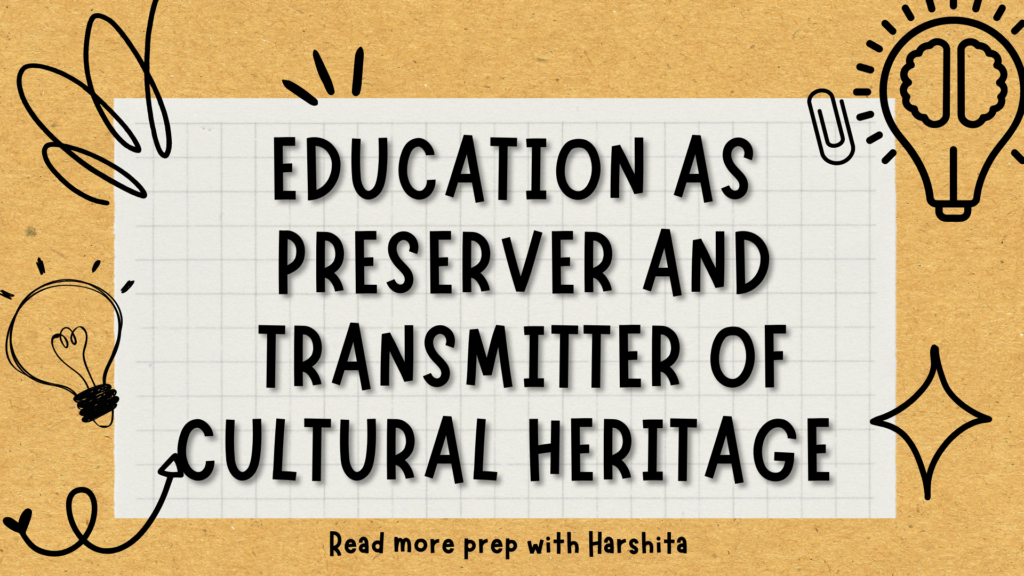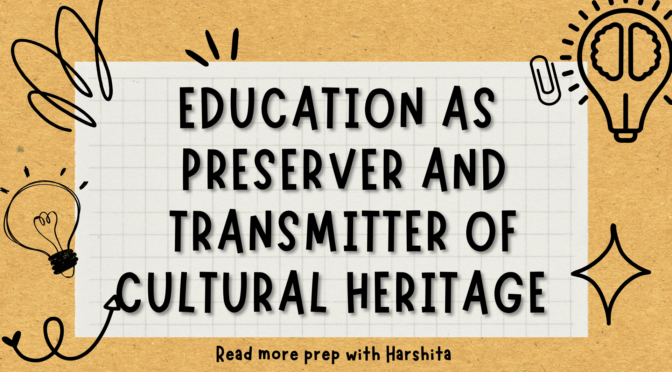Education as preserver and transmitter of cultural heritage means it plays a crucial role in preserving and transmitting cultural heritage. Cultural heritage refers to the beliefs, traditions, practices, customs, and artifacts that are passed down from generation to generation within a community.
Here are some ways in which education serves as a preserver and transmitter of cultural heritage:
- Preservation of traditional knowledge and practices:
Education helps to preserve traditional knowledge and practices by teaching them to new generations. Through education, individuals can learn about their cultural heritage, including their beliefs, customs, and traditional practices. This knowledge is then passed down from one generation to the next, ensuring that cultural traditions and practices are not lost over time.
- Promotion of cultural diversity:
Education promotes cultural diversity by exposing individuals to different cultures and traditions. By learning about different cultures, individuals can develop an appreciation for diversity and understand the importance of preserving cultural heritage. This helps to promote cultural understanding and tolerance, which can lead to a more harmonious society.
- Preservation of artifacts and cultural sites:
Education can also contribute to the preservation of cultural artifacts and sites. Through education, individuals can learn about the historical and cultural significance of artifacts and sites. This knowledge can inspire individuals to take action to protect these artifacts and sites, ensuring that they are preserved for future generations.
- Promotion of cultural tourism:
Education can also promote cultural tourism, which can provide economic benefits to communities while preserving cultural heritage. Through education, individuals can learn about the importance of cultural tourism and the benefits it can bring to local communities. This can encourage individuals to visit cultural sites, support local businesses, and contribute to the preservation of cultural heritage.
In conclusion, education serves as a preserver and transmitter of cultural heritage by preserving traditional knowledge and practices, promoting cultural diversity, preserving artifacts and cultural sites, and promoting cultural tourism. Through education, individuals can develop an appreciation for their cultural heritage, ensuring that it is passed down from one generation to the next.
Also Visit : Prep with Harshita

Also Read : Inert and Live Curriculum

